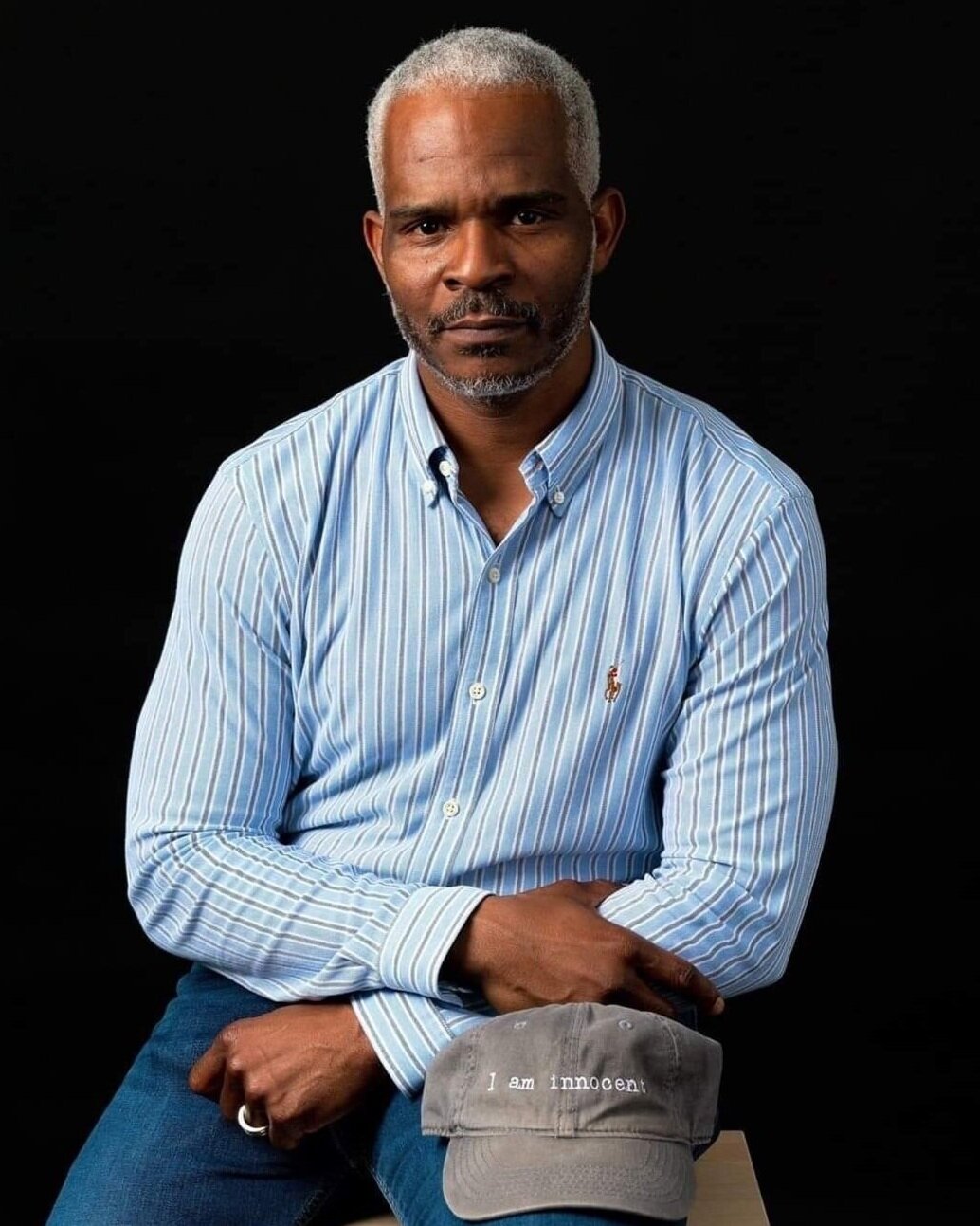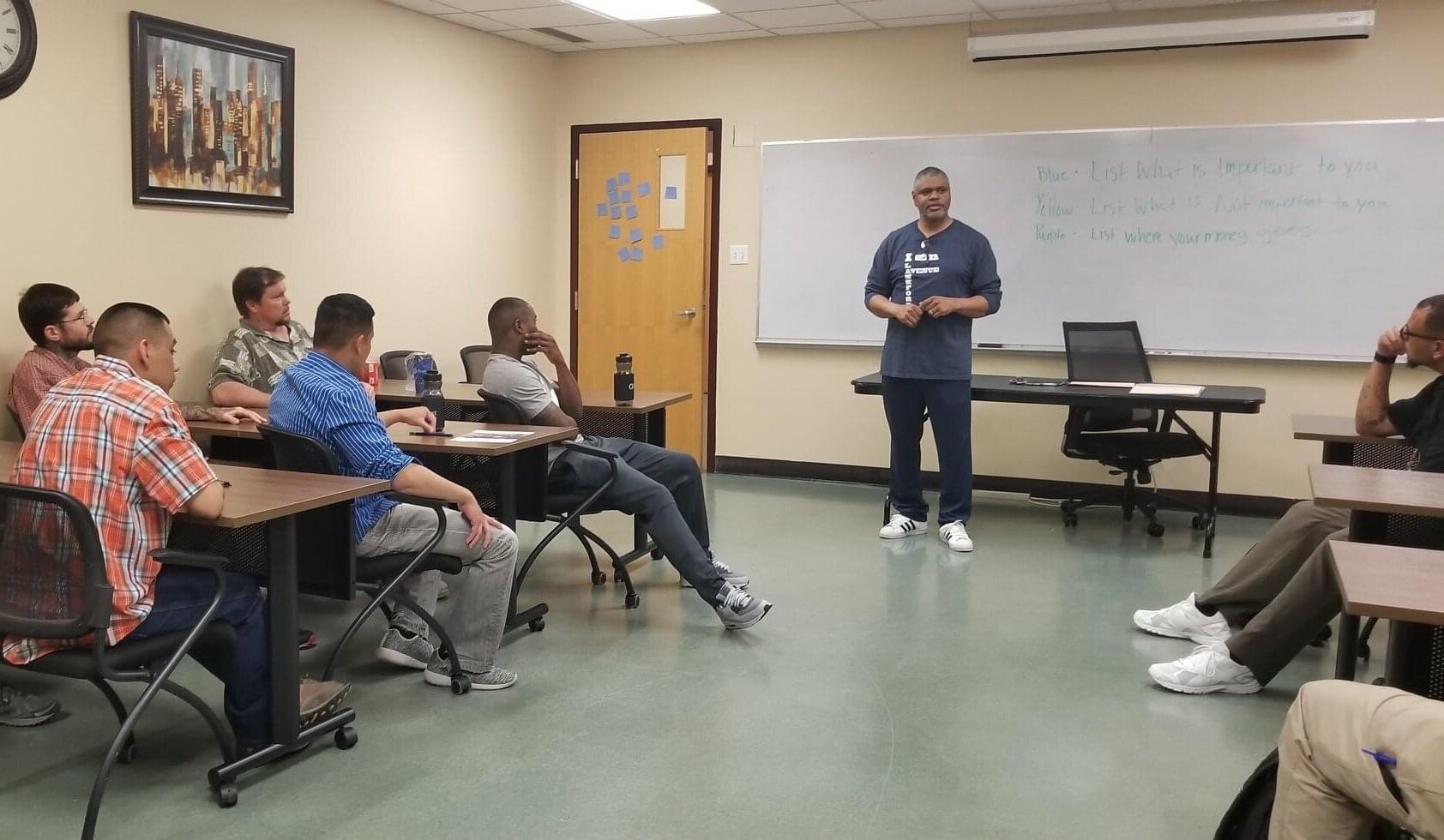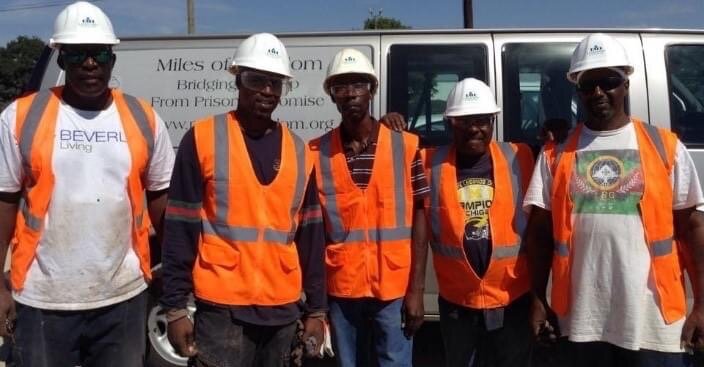Published May 3, 2020 at 5:09pm.
Story by Ashley Baker. Photos courtesy of Miles of Freedom.
It is just past 1 a.m. on a warm summer evening in May of 1994, and 19-year-old Richard Miles is making his way home from visiting his girlfriend in Oak Cliff.
Richard crosses an intersection, a few blocks from his home when suddenly the lights of a police car are flashing behind him. He hears the buzzing of a helicopter overhead and a spotlight shines down upon him. Over the intercom of the police car, someone is yelling, “Put your hands up and get on the ground! Where’s the gun?” Next thing he knows, he’s being handcuffed, his rights are read to him and he’s being shoved into the back of the police car.
Richard is told that two men were shot, one fatally. The scene of the crime was just six miles from where he was picked up and arrested.
Richard was found guilty, for murder and attempted murder, and sentenced to 60 years in prison.
However, he was innocent.

Growing up in Oak Cliff, Richard and his three siblings were raised by his mother and stepfather. “We grew up in a very spiritual home. We were at church ten days a week,” Richard said jokingly. He described himself as an average teenage boy with dreams of leaving home and building a life for himself. A year before his arrest, he had graduated from high school and was working at McDonald’s to earn an income. He had plans to move and study engineering at Texas State Technical College (TSTC) Waco.
All his dreams and ambitions changed that May evening he was arrested.
Two days after being arrested, the guards at the Dallas jail finally allowed Richard to make a phone call. He picked up the prison phone and dialed the number to his mother’s home. This wasn’t a call either of them had ever anticipated coming. He cautiously began by telling her that he had been arrested for murder and before he could even finish the story, she interrupted him and said: “I know that you’re innocent and your father and I are going to walk by your side every step of the way. We will do whatever it takes to prove your innocence. We are going to fight for you.” That phone call with his mother gave him the necessary hope to make it through the most difficult moment of his life, and the strength to use his experiences to help others along the way.
Richard’s trial began, August 20, 1995, seventeen months after his arrest. The trial lasted six days. During the trial, the prosecution relied heavily on the testimony of one key witness. This witness confirmed that he had seen Richard at the scene of the crime. This was indeed true, as the officer that arrested Richard, brought him to the crime scene immediately upon his arrest. However, nine witnesses testified that the suspect they had seen the night of the crime was darker-skinned and taller than Richard was. The prosecution presented evidence on gunshot residue found on Richards’ right hand. The defense argued that it was not gunshot residue but could have been residue from matches or handcuffs. Also, there was evidence that proved the shooter was right-handed, and Richard was left-handed. Lastly, Ernest, Richard’s best friend who had been with him the night of the arrest, testified that he had dropped Miles off to walk the rest of the way home just moments before the arrest.
Even with this evidence in Richard’s favor, the jury found him to be guilty. He received two consecutive sentences, 40 years for murder and 20 years for attempted murder.
After his trial ended, Richard was sent to the Coffield Unit, one of the largest prisons in Texas—housing over 5,000 men. On his first day in prison, Richard met Benjamin Spencer, an inmate working in the prison barber shop cutting hair. Benjamin tells Richard that he has also been wrongly accused of a crime he didn’t commit and that Centurion Ministries, the first organization in the world dedicated to the vindication of the wrongly convicted, was working with him in order to get his case reopened with the Dallas court. Benjamin encouraged Richard to write to Centurian about getting assistance with re-opening his case.
Richard wrote to Centurion in 1997 with high hopes that they would take on his case. Unfortunately, they sent him a polite letter back telling him that they would be unable to take his case for more than a decade.
Centurion receives several thousand letters a year from men and women who are incarcerated around the country. Most of these individuals have been incarcerated for years and they are running out of time and hope, as Centurion only works on cases with no DNA evidence. Like Richard, they are writing letters to Centurion with the anticipation of receiving assistance in reopening their cases.
Richard faced many challenges while he was within those prison walls. One of the hardest challenges was the shift from having a unique identity to being a number. “For 15 years, my life as I had known it ceased to exist. I felt kidnapped by a system that stripped me of my sense of individuality,” Richard shares. “It was a system that took my clothes, my name, my decision making, and gave me a uniform, a number, and endless commands. It took my identity and my authority as a human being.” While Richard struggled to hold on to hope, his parents were actively working to prove his innocence. They volunteered with Mother Activists of Social Systems (MASS), with the hope that founder, Joyce Ann Brown, would be able to provide assistance in re-opening Richards’ case. After Joyce Ann heard Richard’s story, she personally called Jim McCloskey, founder of Centurion, and encouraged him to look into Richard’s case. Nearly a decade after he had first written to Centurion, Richard receives the word that they made the decision to reopen his case.
On October 12, 2009, fifteen years after being arrested, Richard walked out of Coffield Unit, a free man. But the fight to prove his innocence was just beginning. Richard had to submit an appeal to the Court of Criminal Appeals in Austin. Texas is one of the few states in the country where the lower courts do not have the final say.
While he waited on the ruling of his appeal, Richard, like many former inmates, found the transition of life outside of prison to be more challenging than he imagined. He had walked into prison as a 19-year-old boy and was walking out at the age of 34. The world as he had known it, had drastically changed in the years he had been locked up. At 19, he had just purchased his first beeper. At 34, he is released and he enters a world where everyone has smartphones in their pockets. At the age of 19, there were no trains in Dallas. At 34, he gets out and there are trains everywhere. At the age of 19, when you wanted to apply for a job, you went in and filled out a paper application. At 34, he gets out and you have to apply online for most jobs.

The label “convicted felon” heavily hung over Richard like a neon sign that never turned off. This label made it incredibly challenging for him to get back on his feet. He struggled to find an apartment complex that would allow him to sign a lease. Job after a job fell through as soon as “convicted felon” popped up in every background check.
>
“The mission of Miles of Freedom goes beyond just to keeping former inmates from returning to prison—we also address their quality of life. They may stay out of prison but some may live their lives homeless in Downtown Dallas. Instead, the question we ask ourselves is, can we sustain their lives in a way where homelessness or going back to prison isn’t the only option for them.”
It was Richard’s personal struggle to adjust to life outside of prison, which led him to start Miles of Freedom, a nonprofit that exists to provide holistic re-entry assistance to individuals returning home from prison. “I founded Miles of Freedom, not because I was innocent, but because I had been in prison. I resonate with the countless men and women who desperately need the assistance I found myself needing when I returned home from prison,” Richard says. “We created an organization that approaches re-entry from a holistic standpoint. Providing services for the person who was directly impacted, the family structure that was fragmented, and the community that lays dormant because of incarceration.”
As a solution to initial employment after release, the Miles of Freedom Lawn Care Service provides a temporary job for men and women in the program. They also offer a weekly shuttle service that takes family members to see their loved ones who are incarcerated.
“At Miles of Freedom, we see the revolving door of individuals getting released and then going back to prison within the first year,” Richard says. According to the National Institute of Justice, almost 44 percent of released inmates, return to prison before the end of their first year out. “Our challenge as an organization is fighting the belief that reducing recidivism is the goal. We are not comfortable with hanging our hat there,” Richard commented. “The mission of Miles of Freedom goes beyond just to keeping former inmates from returning to prison—we also address their quality of life. They may stay out of prison but some may live their lives homeless in Downtown Dallas. Instead, the question we ask ourselves is, can we sustain their lives in a way where homelessness or going back to prison isn’t the only option for them.” Since 2012, Miles of Freedom has helped more than 1,500 men and women who are returning home from prison, or are working to regain their life after a felony conviction, with a 7% recidivism rate.
In February 2012, after a long fight by Centurion Ministries, the Dallas judicial system fully exonerated Richard of all charges that had been brought against him.
Today, Richard is happily married to his sweetheart, Latoya, and they have two beautiful daughters. As our interview ended, Richard explained the reason he has such joy and hope in spite of what he experienced. “Regardless of what you go through in your life, if you hold true to faith, your story will not be wasted. It will turn out to be good. The conditions of your story have nothing to do with your life being good.”
If you would like to support Miles of Freedom and their work in North Texas, you can make a donation on their North Texas Giving Tuesday Now page or at milesoffreedom.org.
If this story has inspired you to support the North Texas nonprofit community, visit our Support Nonprofits During COVID-19 page to learn how you can get involved!
